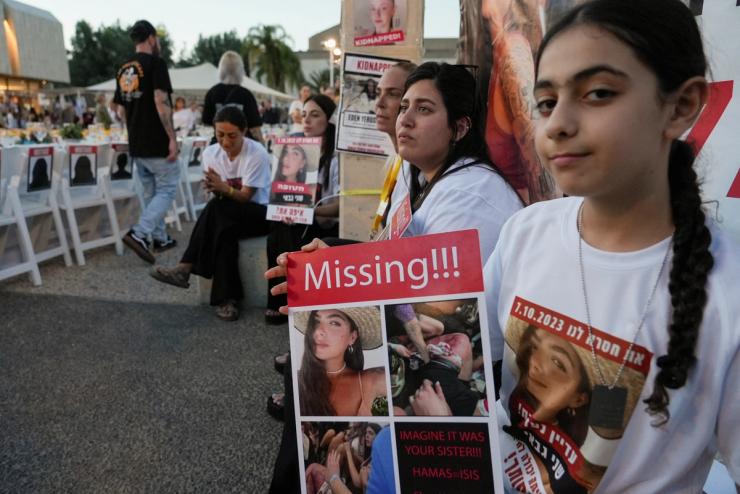The News
Dozens of hostages — estimated to be more than 200 — continue to be held captive in Gaza more than one month after Hamas’ Oct. 7 attack on Israel, and their future remains unclear.
Israel says its ground invasion goal in Gaza is to destroy Hamas and to rescue the hostages. The IDF has so far rescued one Israeli soldier, while Hamas has released four hostages.
Governments around the world are pressuring Israeli Prime Minister Benjamin Netanyahu to declare a ceasefire, but he has rejected such calls, saying he will only consider a ceasefire once all hostages have been returned.
Israel reportedly came close to striking a deal with Hamas in recent days, but those talks fell apart after Israel advanced its ground operation in Gaza. Negotiations have resumed but are only focusing on civilian hostages, rather than Israeli soldiers, The New York Times reports.
SIGNALS
It remains unclear what Hamas’ intentions are with the hostages. Historically, kidnappings by Hamas are driven by the demand to release Palestinian prisoners, with Israel often releasing hundreds of prisoners in exchange for just a few Israeli hostages, explains Carmiel Arbit of the Atlantic Council. Hamas’ choice of hostages this time around could speak to its intentions. Kidnappers hoping to “secure a trade” usually pick hostages who can withstand long, brutal captivity, writes academic Danielle Gilbert for the Center for Strategic and International Studies. But Hamas’ targets this time include children, women, and the elderly. “In grabbing a wide range of victims — not only soldiers but also foreigners and Israeli civilians of all ages — Hamas communicates that hostage survival may not be the point,” Gilbert argues.
The Gaza situation is presenting Israel with unparalleled challenges, despite its experience in hostage rescues. Hamas has said that other groups like the Palestinian Islamic Jihad are also holding captives, the Wall Street Journal reports, complicating negotiations. Gaza is also an incredibly dense urban environment with a complex set of underground tunnels, meaning the hostages are likely hidden in multiple locations and face heightened danger with Israel’s ongoing bombardment of Gaza. Hamas’ overlapping communication with Arab governments is also causing confusion, the Journal explains. Most countries have access to Hamas’ political wing, but the group’s military wing, which is in control of the hostages, limits its communications with Egypt.
The hostage negotiations are complicated by the fact that Hamas is holding not just Israelis, but several other foreign nationals, including Americans, Argentinians, Russians, French, and over 50 Thais, writes Semafor’s Jay Solomon. Israeli leaders fear that Hamas could seek to divide Israel from Washington and these other countries by offering to free non-Israeli passport holders while still holding on to Israelis. This would increase pressure on Netanyahu to pause his military campaign in order to get the foreign nationals out, even as the prospect of his recovering his own citizens dwindles. The memory of separating Israelis and Jews from other hostages remains fresh in the Israeli consciousness, Solomon writes, after the 1976 hijacking of an Israeli El Al jet where Palestinian and German terrorists released other passengers except the Israeli and Jewish ones and threatened to kill them unless Palestinian prisoners were released.
Qatar has emerged as a central player in the hostage discussions, recently acting as a mediator between Hamas and the U.S. and Israel to achieve the daily four-hour pauses. Qatar is something of a “Persian Gulf paradox,” The Washington Post’s David Ignatius wrote this week after interviewing its prime minister. Qatar shelters Hamas’ political leadership, which is based there, but it also has a pro-American foreign policy position. It’s become clear that without Qatar to mediate, the U.S. and Israel “would have no good channel to negotiate the release of hostages or anything else involving the terrorist group.”


